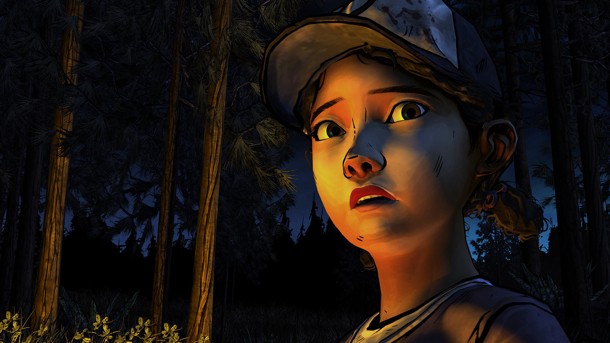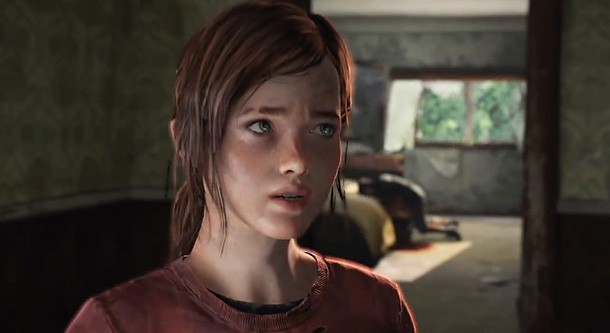Please support Game Informer. Print magazine subscriptions are less than $2 per issue
Opinion – Younger Characters Are Making A Stronger Impact

Adolescence is a time of conflicting emotions. One minute life is carefree, and then growing up rears its ugly head, dealing hard lessons. Young teenagers are just starting to realize who they are, and they're far off from figuring it out. Coming-of-age stories remain some of the most popular and they have a rich history in literature, film, and music. The Catcher in the Rye, Stand By Me, and John Mellencamp's "Jack and Diane" all tell stories about the hard road to maturity.
I never thought much about how it would transition to video games. Sometimes it works poorly, showcasing extremes like the irritatingly angsty Hope from Final Fantasy XIII, or overly annoying ones like Zill from The Legend of Zelda: The Wind Waker. Sometimes the portrayals shine like in Rockstar's Bully where you deal with corrupt educators and student tormenters to make your own place in a new school. Even the Fable games have you overcoming a tragic childhood event and forging your own path. As video game writing continues to improve and take bigger steps in terms of diversity and subject matter, I suspect we are set to see even more portrayals of coming-of-ages stories. Even in the past year, more games using younger characters that mature were released.
Telltale tested the waters with having Clementine as one of the main characters in the grim world of The Walking Dead. While Clementine doesn't fit into the widely recognized definition of adolescence, she's had to grow up faster than normal because of circumstances surrounding the zombie apocalypse. In season one, we controlled Lee Everett and strove to shield her from growing up too fast, putting her safety above everything else. The outpouring of fans' adoration of Clementine was proof that she captivated players. We watched her grow up and confront the apocalypse, learning how to shoot a gun and coming to terms with a brutal world that offers no guarantees. For season two, Telltale took her journey one step further. The torch from Lee had been passed; players now control Clementine and are in charge of her destiny.
We're still seeing how her journey pans out, but episode one has already showcased her growth well. Clementine could have just been a little girl you had to save, but she's so much more than that. She's learning the ropes in this brutal world, helping others stay safe, and confronting her own limitations head on. Telltale's confidence to put her in a starring role is telling because it's uncharted territory. Are there boundaries with young characters? How do you ensure you're not manipulating players' emotions with them? These are issues that Telltale and other video game writers will have to keep confronting. Either way, Clementine is one of the most beloved recent characters to date and that speaks to Telltale's well-rounded writing.

Naughty Dog put a similar emphasis on Ellie in The Last of Us. That whole journey could have felt like an escort mission, since it's up to you as Joel to ensure her safety. Instead of being melodramatic or utterly useless, Ellie holds her own. She helps Joel in battle, learns from him, and wrestles realistically with the plight on her shoulders as potentially holding the cure for the apocalypse. You get to know Ellie more as the journey goes on and the progression feels natural as she reveals more of her secrets and feelings further into the journey. She doesn't become Joel's quest; she becomes someone he deeply cares about, which no doubt plays into the superb ending. While Ellie is facing adult issues, Naughty Dog also does a great job of reminding you of her actual age. Her excitement when she finds comics or randomly breaks into song says a lot.
Coming-of-age stories have already cemented a place in popular media. Could video games be the next medium to fully embrace this genre? It's definitely possible. Games are delving into more realistic subject matter, like the recent Brothers: A Tale of Two Sons, which had its share of fantastical elements, but still offered a commentary on growing up and facing the challenge of death. As we go forward in the future, I can see younger characters taking center stage more. That's hardly a bad thing, either. This age group is refreshing compared to the typical, strong adult hero. Seeing characters face the trials of growing up and coming out stronger is also relatable. You can't really help but root for their success.
If the story and characters are grounded and unique stories can be told, coming-of-age subject matter could hold an even more compelling place in the video game landscape. That's why Clementine and Ellie are important characters to discuss; they're success stories. Time will tell if they are simply anomalies or are the vanguard characters for this genre. Right now, I'm thankful they exist and that the trend is continuing. Who would have thought that some of the best characters last year would be in the adolescent age group?










